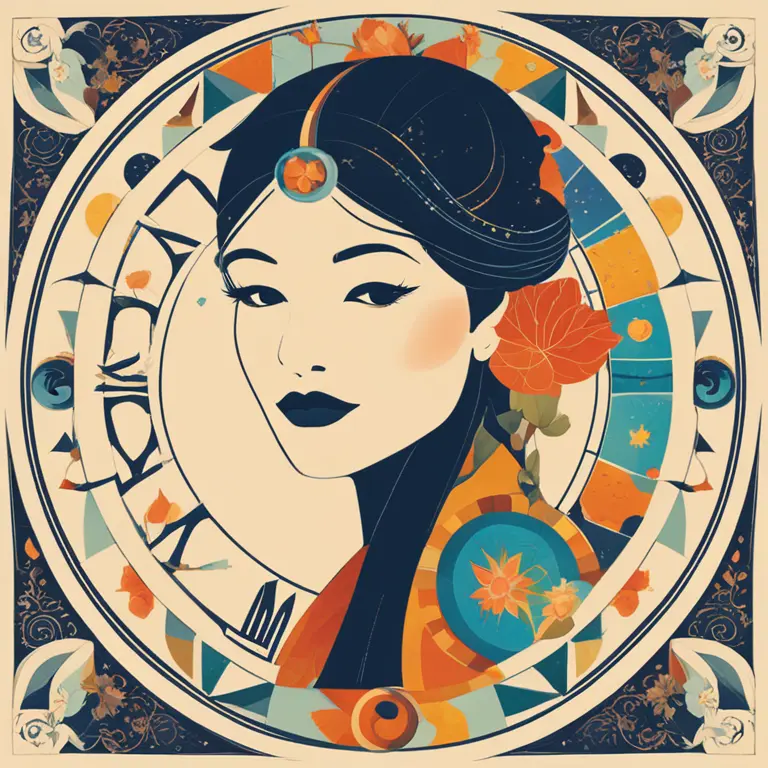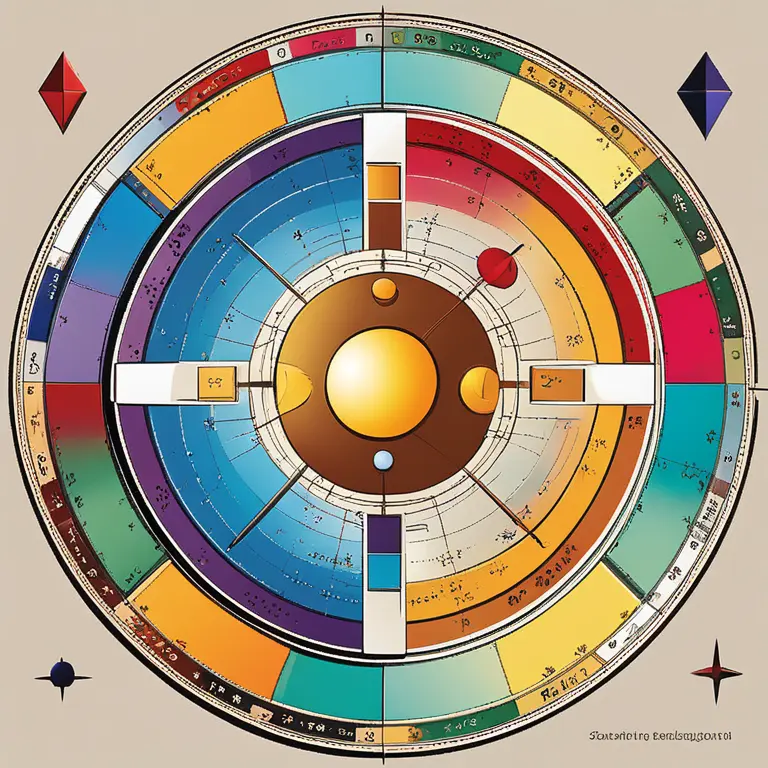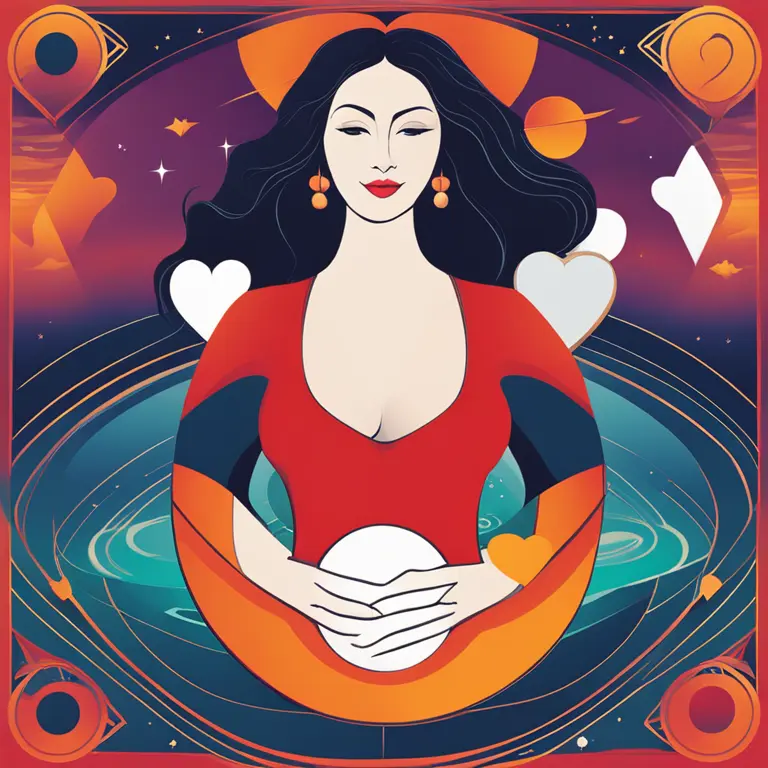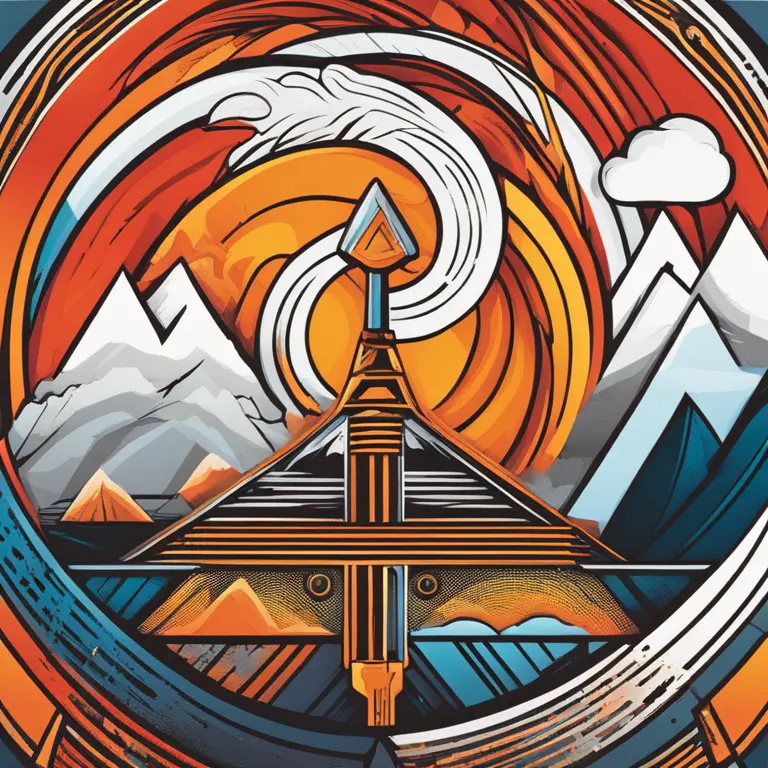
Are We Star-Crossed? Zodiac Compatibility Explained
Examine the cosmic chemistry between zodiac signs and how they influence romantic compatibility in this insightful article.
article by Sofia Ferguson
Zodiac Basics and Love
Astrology has long been used as a lens to understand personality traits and predict potential compatibility between individuals. At the core of this cosmic matchmaking is the zodiac, a celestial coordinate system that assigns twelve signs to different segments of the sky. Each sign correlates with specific energies, strengths, and weaknesses that can profoundly impact interpersonal relationships. When assessing compatibility, astrologers examine not just sun signs, but also moon and rising signs, creating a nuanced profile of love potential.

Elemental Attraction
In astrology, signs are grouped into four elements: fire, earth, air, and water. Each element offers a layer of compatibility. Fire signs (Aries, Leo, Sagittarius) are passionate and dynamic, often syncing well with air signs (Gemini, Libra, Aquarius) that provide intellectual stimulation and share a love for adventure. Earth signs (Taurus, Virgo, Capricorn), known for their stability and practicality, typically harmonize with water signs (Cancer, Scorpio, Pisces), who offer emotional depth and intuition.

Assessing the Planetary Impact
Compatibility is not solely about sun signs. The positions of Venus and Mars are pivotal in love, influencing how we express affection and desire. Venus governs love languages and attraction, while Mars rules over the physical expression of love and our assertive energy. A harmonious aspect between someone's Mars and another's Venus in their respective birth charts can hint at a strong mutual attraction and understanding.

Angles of Interaction
Astrologers consider aspects, or angles, between planets in two charts. Trines and sextiles are harmonious aspects that denote ease and positive flow in a relationship. Squares and oppositions, on the other hand, suggest challenges and tension. However, these "difficult" aspects can also be the catalyst for growth and bring a dynamic energy to a relationship, as long as both parties are willing to work through their differences.

Sun Sign Synastry
While it's an oversimplification of astrology, sun sign compatibility is a popular starting point for many. Signs of the same element naturally get along and can create relationships that feel effortless and supportive. Opposite signs often attract, bringing a complementary balance, though not without its challenges. Cardinal signs (Aries, Cancer, Libra, Capricorn) bring initiative, fixed signs (Taurus, Leo, Scorpio, Aquarius) provide stability, and mutable signs (Gemini, Virgo, Sagittarius, Pisces) offer adaptability—qualities that can blend harmoniously or clash, depending on the pairing.
Mutual Growth and Future Trends
Astrological compatibility is a complex and evolving field. In 2024 and beyond, astrologers continue to integrate new celestial discoveries and approaches to chart interpretation. Today's analysis of compatibility goes beyond traditional methodologies, embracing variations such as the role of asteroids and transneptunian objects. Mutual growth remains a constant theme, with the understanding that even the most compatible signs can benefit from conscious effort and communication.
Your Unique Cosmic Connection
It's essential to remember that astrology provides possibilities, not certainties. The dynamics of any relationship are as unique as the individuals involved. Thorough chart comparisons and consultations with professional astrologers can offer deeper insights. Above all, compatibility is fortified not just by the stars but also by the dedication, respect, and love shared between partners.
Published: 1/31/2024
Modified: 1/31/2024
More predictions
Come back here soon to learn more about yourself and your future


Academic Alignment: Education and Relationship Compatibility
In the complex world of relationship compatibility, the impact of education levels often sparks intriguing discussions. While shared interests and values are widely acknowledged as compatibility indicators, the influence of educational attainment on romantic relationships is a topic of both interest and debate. This article explores the extent to which education levels can affect relationship compatibility, examining various aspects from communication styles to shared experiences. It delves into whether a similar educational background contributes to a harmonious relationship or if differences in education can be bridged by other shared qualities.


Synastry of Marriage: Decoding Longevity
The synastry of marriage, a fascinating aspect of astrological study, delves into predicting the potential for long-term success in marital relationships. Synastry, the art of relationship astrology, examines how the interplay of different astrological elements between partners can influence their marital journey. By analyzing planetary positions and aspects in each partner's birth chart, synastry provides insights into compatibility, challenges, and growth areas in a marriage. This article explores how synastry can be used to predict and understand the dynamics of a successful long-term marriage, offering a deeper perspective into the cosmic connections that bind partners together.


Cosmic Connections: Birth Dates and Love Compatibility
In the quest for love and compatibility, the stars and numbers play a mystical role. Birth dates, more than mere markers of age, are gateways to understanding ourselves and our potential partners in the cosmic realm. This article delves into how birth dates, through the lenses of astrology and numerology, can be powerful tools in unraveling the mysteries of love compatibility. It’s a journey from the astrological charts to the numerological calculations, each offering unique insights into the dynamics of love and partnership